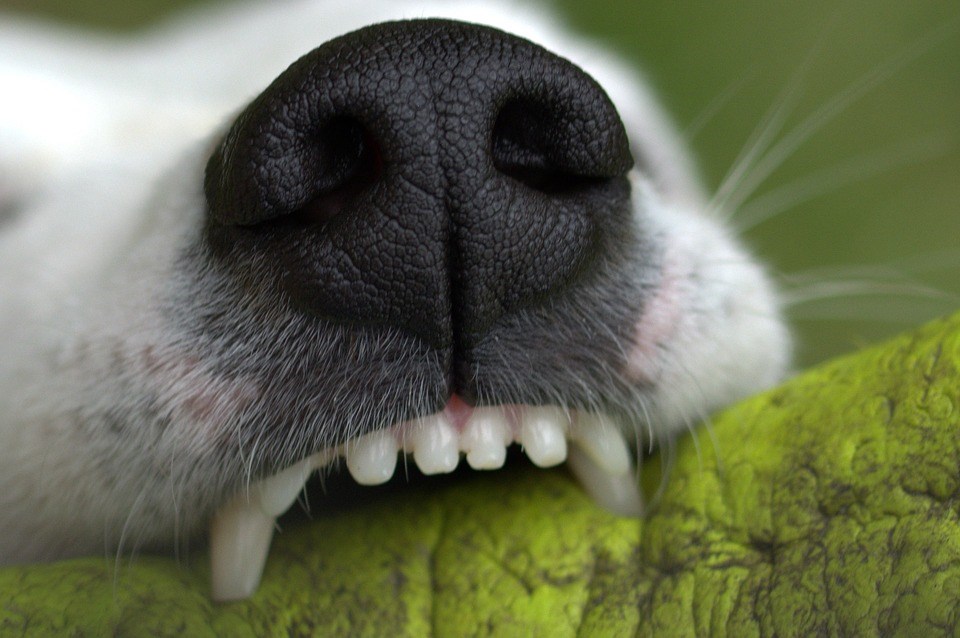A friend of mine recently complained that my dog has stinky breath, but isn’t “doggie breath” normal?
That potent doggie breath is more than just an unpleasant odour. It can actually signify a potentially serious health problem: dental disease.
Dental disease is very common — so common, in fact, that an estimated 80% of dogs will have some form of the disease by age three. Apart from bad breath, other symptoms include red, swollen gums, yellowish or brownish tartar on the teeth, loose teeth and blood left behind on chew toys.
Not surprisingly, dental disease is painful. Dogs with the disease have sore mouths and may have difficulty at mealtimes — chewing on only one side or dropping food as they eat.
They may even lose their appetite. Dogs may also be reluctant to chew on toys or shy away when someone reaches for their head.
Dental disease can be present without any obvious signs of pain, however, and still be cause for concern. Bacteria from the mouth can spread through the bloodstream to the kidneys, liver and heart, causing damage to these vital organs. Left untreated, dental disease can shorten a pet’s life span.
Because dental health has such a significant impact on a dog’s overall well-being, the best thing to do is have your dog’s teeth checked by a veterinarian as part of a routine health exam. The veterinarian may recommend:
• Brushing your dog’s teeth every day or at least every other day (less frequently than this is of virtually no value to preventing dental disease).
• Giving your dog nylon or rubber chew toys to help scrape away plaque and tartar.
• Feeding your dog a special veterinary dental diet to help slow down the formation of plaque and tartar.
• A professional dental cleaning, which requires your dog to be under general anaesthetic. Teeth cannot be safely and thoroughly examined and cleaned — especially under the gum line — while a dog is awake.
• Depending on how far the disease has progressed, your dog may also require tooth extractions.
For dogs to live longer, healthier lives — free of dental disease — regular veterinary visits are a must.



